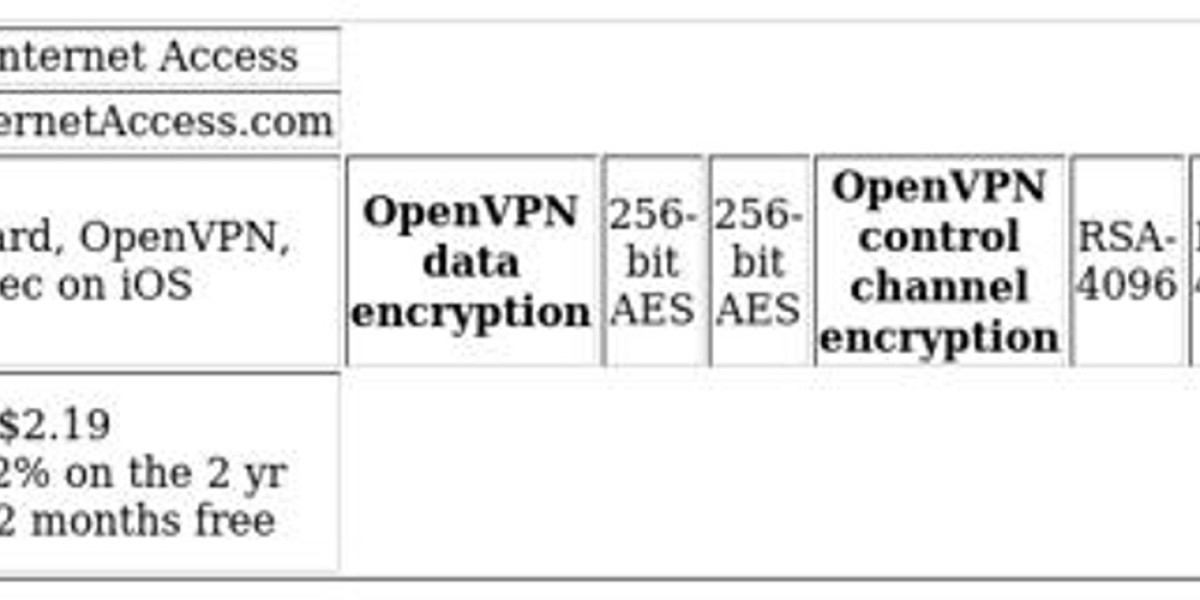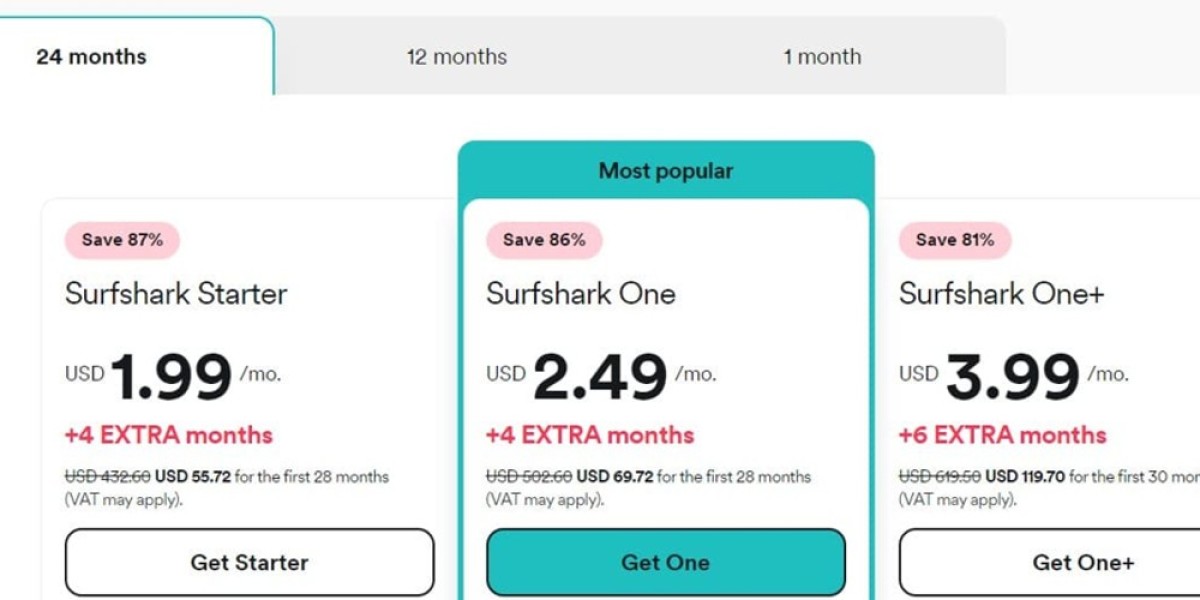VPN Comparison: ExpressVPN vs PIA
In today’s digital landscape, safeguarding your online activity is no longer optional—it’s essential.
ExpressVPN and Private Internet Access (PIA) emerge as leading contenders, but their approaches diverge sharply.
Where ExpressVPN prioritizes streamlined performance and global accessibility, PIA leans into configurability and affordability.
Our side-by-side assessment scrutinizes encryption protocols, server reach, user experience, and value for money.
Speed enthusiasts might gravitate toward ExpressVPN’s optimized network, while tech-savvy users could prefer PIA’s adjustable settings.
Neither service is flawless, however. Trade-offs exist in areas like pricing structures and advanced feature availability.
By dissecting these nuances, we aim to simplify your decision-making process in an oversaturated market.
When considering the cost of ExpressVPN and Private Internet Access (PIA), it's evident that PIA is generally more budget-friendly. Both providers have three subscription plans, but the pricing varies.
Currently, ExpressVPN is offering a 49% discount, which makes it more competitive. This deal includes 3 months free, making it an attractive option for those looking to save. However, even with this discount, PIA still tends to be the more affordable choice.
For instance, PIA has a deal that lets you save 58% on a 2-year plan, bringing the monthly cost down to just $2.91.
Both services provide a 30-day money-back guarantee, ensuring you can try them out risk-free.
In terms of payment methods, both accept major credit and debit cards, Bitcoin, PayPal, and Mint. PIA, however, offers greater flexibility by accepting a variety of cryptocurrencies, including Ethereum, Litecoin, and Neo.
To ensure an accurate comparison of ExpressVPN and Private Internet Access (PIA), it was essential to set a baseline for our internet connection. We conducted three separate speed tests, averaging the results to achieve a reliable benchmark. For this process, we opted to use Ookla, a widely recognized speed testing service, instead of any in-house alternatives, to maintain objectivity.
Private Internet Access faced challenges during testing
with frequent buffering interruptions in HD streaming scenarios
and inconsistent latency during peak usage hours
ExpressVPN maintained seamless performance across all evaluated tasks
including data-intensive activities like 4K video playback
where connection speeds remained consistently stable
PIA's network infrastructure showed occasional congestion signs
particularly when accessing geographically distant servers
while ExpressVPN demonstrated optimized routing capabilities
that preserved browsing responsiveness even under heavy loads
Real-world speed tests revealed noticeable differences
in how each provider handles high-bandwidth applications
with encryption efficiency playing a key role
in maintaining usable connection speeds during prolonged sessions
Wireless network inconsistencies often lead to speed variations
making VPN performance assessments tricky
During ExpressVPN testing
upload rates dipped marginally
while download metrics unexpectedly rose
This anomaly likely stems from inherent Wi-Fi instability
not the VPN itself
The critical insight?
ExpressVPN maintains near-native browsing speeds
with minimal real-world impact
Repeating the experiment with Private Internet Access
revealed nearly identical patterns
Both services demonstrate comparable ability
to preserve baseline connection performance
despite inevitable network fluctuations
While speed test outcomes offer a glimpse into potential performance, they aren't the sole metric for determining a VPN's speed. These tests can, however, provide some insight into whether a specific service might slow down your internet connection.
Both ExpressVPN and Private Internet Access (PIA) offer comprehensive support for multiple platforms, including dedicated applications for Windows, macOS, Android, and iOS, as well as installer files for Linux-based systems.
While both services provide browser extensions for Chrome and Firefox, they differ slightly in their offerings: ExpressVPN extends its reach to Safari, while PIA provides an extension for Opera. It's worth noting that the ExpressVPN extensions do more than just manage your connection; they also adjust your browser’s geolocation data to match the selected country, enhancing your browsing experience.
For those who need to use a VPN on multiple devices, both PIA and ExpressVPN allow up to five simultaneous connections. Your home router counts as one device, and both services offer pre-configured routers. However, ExpressVPN stands out by making it easier to install on existing routers, thanks to its user-friendly firmware that can be flashed onto your router.
ExpressVPN also includes a Media Streamer app, which acts as a smart DNS proxy. This feature is particularly useful for unblocking geo-restricted content without the overhead of full encryption, thus providing a balance between access and speed.
The desktop and mobile apps from ExpressVPN have some differences. The mobile version lacks certain features like the speed test and smart location, and the settings menu is simplified. Nevertheless, the apps are designed to be intuitive and easy to navigate, allowing you to connect to a server with just a few clicks.
Similar to ExpressVPN, Private Internet Access (PIA) provides users with a straightforward two-click process to connect to their preferred server.
The mobile application of PIA mirrors most of the functionality found in its desktop counterpart. While this comprehensive approach offers users greater control over their VPN experience, it does result in slightly more cluttered menu navigation compared to ExpressVPN's streamlined interface.
One notable consideration with PIA's mobile app is its default encryption settings. Unlike the desktop version, the mobile app is initially configured to use 128-bit AES encryption rather than the more robust 256-bit option. Similarly, it employs SHA-1 authentication instead of the stronger SHA-256 protocol.
Though these default settings can be easily modified in the preferences, users might overlook this important security configuration if they're not specifically looking for it. This minor drawback requires a simple adjustment but represents an extra step for security-conscious users.
VPN Comparison: ExpressVPN vs PIA
ExpressVPN offers global coverage with its network of 2,000+ servers distributed across 94 countries worldwide, providing users with extensive international connection options.
In contrast, Private Internet Access (PIA) boasts a larger server fleet of nearly 4,000 servers, but with more limited geographical diversity, spanning only 33 countries.
PIA's network configuration shows a notable concentration in the United States, where more than 2,176 servers—representing over half of their total infrastructure—are located.
This server distribution difference highlights each VPN's distinct approach: ExpressVPN prioritizes global reach, while PIA emphasizes server density with particular strength in North American connectivity.
While PIA initially seems advantageous for US-based streaming,
its infrastructure limitations reveal critical gaps in regional access.
Popular American platforms like NHL.tv and CBS Sports
implement hyperlocal restrictions that go beyond national borders –
blocking content based on state-level licensing agreements.
PIA's server network lacks city-level granularity,
trapping users in a catch-22: they can reach US servers generally
but cannot bypass geo-fences designed for specific metropolitan areas.
This architectural shortfall renders state-specific broadcasts
on NBC regional networks and similar services perpetually inaccessible,
undermining PIA’s value for precise location spoofing needs.
ExpressVPN stands out in the realm of geographic restriction circumvention compared to Private Internet Access (PIA). In recent years, streaming giants such as Netflix and BBC iPlayer have significantly enhanced their geo-blocking technologies to prevent unauthorized access.
This technological arms race has created a challenging environment where only well-resourced VPN providers can effectively maintain reliable access to these platforms. The substantial investment required to continuously develop workarounds for increasingly sophisticated blocking measures has become a key differentiator in the VPN market.
ExpressVPN's superior capability in this area stems from their ability to allocate considerable resources toward constantly updating their systems to overcome these restrictions. This advantage allows their users to consistently access content from outside intended broadcast regions, making it particularly valuable for international travelers or those living abroad who wish to access home country content.
Private Internet Access (PIA) acknowledges challenges in consistently bypassing China's Great Firewall. Despite technical capabilities, PIA users may experience intermittent blocking, making it unreliable for consistent access within China.
When evaluating quality VPN services like ExpressVPN and PIA, robust security features are essential components. Both providers offer comprehensive security options, though with different implementations and strengths.
Our comparative analysis below examines the security features of both ExpressVPN and Private Internet Access, highlighting their respective offerings. Understanding these differences helps users determine which service better aligns with their specific privacy and security requirements.
Private Internet Access prioritizes customizable security
by offering 128-bit encryption for performance-conscious users
while maintaining 256-bit AES as an option for maximum protection.
Though both VPNs support legacy PPTP connections,
ExpressVPN extends its protocol arsenal with SSTP -
a strategic advantage for bypassing network restrictions
that block traditional VPN tunneling methods.
PIA simplifies the user experience with integrated ad blocking,
appealing to those prioritizing convenience over advanced configurations.
ExpressVPN counters with consistent 256-bit encryption enforcement
and firewall evasion capabilities through modern protocols.
The encryption flexibility versus protocol innovation debate
highlights contrasting philosophies in balancing speed,
security, and accessibility across different network environments.
When comparing ExpressVPN and Private Internet Access (PIA), users will find several shared security mechanisms that effectively conceal their actual IP addresses.
Both VPN providers implement kill switch technology as a core safety feature. This essential function immediately halts all data transmission if your VPN connection drops unexpectedly, preventing potential exposure.
Another convenient feature shared by these services is auto-connect functionality. When enabled, the VPN automatically establishes a secure connection during system startup, eliminating the risk of unprotected browsing sessions.
One distinguishing capability offered by ExpressVPN is its split-tunneling function. This advanced feature allows users to selectively route specific applications through the VPN while maintaining direct internet access for others, providing greater flexibility in managing connection paths.
VPN Services Comparison
Neither ExpressVPN nor Private Internet Access (PIA) retains any identifiable personal data, though both do gather some information for operational purposes.
For ExpressVPN, the logs are limited to a user's server location, the volume of data transferred, the date of the connection, and the version of the application. Importantly, these details cannot be used to attribute specific online activities or visited websites to an individual, as demonstrated in a police investigation in Turkey.
In contrast, PIA takes a more stringent approach, collecting only the email address provided during registration. If a user signs up with a temporary email and pays using cryptocurrency, their activities become untraceable. This no-logging policy has been tested in court twice, with PIA unable to provide any relevant activity logs on both occasions.
It is crucial to note that the legal requirements for data retention vary significantly from one country to another. Some countries, including those part of the 14 Eyes alliance, have agreements allowing surveillance by allied governments.
Despite being based in the United States, a 14 Eyes country, PIA’s strict no-logging policy ensures that it cannot assist in any government investigations. On the other hand, ExpressVPN operates from the British Virgin Islands, a region without mandatory data retention laws and outside the 14 Eyes jurisdiction, further enhancing its privacy protections.
Both services incorporate network-level traffic filtering to intercept unwanted connections
by default. While effective at stopping common threats, pairing this with your device’s built-in firewall adds an extra layer of defense.
PIA stands out by allowing users to lock in a fixed IP, useful for bypassing location-based security checks.
Consistently accessing geo-sensitive platforms (like financial accounts) from the same virtual location reduces false alarms—
a concern if your login suddenly appears from an unexpected region. ExpressVPN avoids static IPs entirely,
refreshing assigned addresses frequently to minimize tracking risks.
Distributed denial-of-service mitigation isn’t explicitly advertised by either provider,
but their infrastructure resilience offers indirect safeguards. Attackers targeting a VPN-assigned IP
would hit the provider’s servers, not your actual network. ExpressVPN publicly positions itself as a buffer against such attacks,
while PIA hints at custom mitigation techniques without disclosing specifics.
Large server fleets enable both to handle moderate attack volumes, though prolonged or sophisticated assaults
might overwhelm these defenses. Users requiring advanced DDoS protection should consider specialized solutions alongside a VPN.
When assessing the customer support of each service, we reached out via email with a straightforward query. ExpressVPN responded promptly, providing a clear and direct answer along with a helpful guide on subscription cancellation.
On the other hand, Private Internet Access (PIA) seemed to misunderstand the initial inquiry, replying that using a VPN for gaming can increase latency. When we clarified that the question was about PlayStation Vue, a streaming service, PIA sent a generic response about how many services restrict VPN use, without offering any specific details about PlayStation Vue.
One significant drawback of PIA’s support is the lack of 24/7 live chat, a feature that has become standard among leading providers and is highly valued by users. ExpressVPN, in comparison, not only offers live chat but also ensures that their support staff are knowledgeable and provide personalized assistance rather than just pre-written responses.
While both services offer searchable knowledge bases, ExpressVPN goes a step further by including video tutorials for setup and configuration. PIA, however, provides similar guides but with screenshots instead of videos.
When comparing ExpressVPN and Private Internet Access (PIA), several distinctions become apparent in their service offerings.
PIA delivers core VPN functionality at a budget-friendly price point, making it an attractive option for cost-conscious users. Its verified no-logs policy stands as a significant advantage for privacy-focused individuals. However, users may encounter limitations with its streaming platform access, geographic server distribution, and support response times.
ExpressVPN, while commanding a premium price, compensates with comprehensive features that justify the investment for many users. Its extensive global server network spans significantly more countries, providing better geographic coverage. The service consistently bypasses geo-restrictions on popular streaming platforms that often block VPN connections.
Customer support represents another area where ExpressVPN demonstrates superiority, offering more responsive assistance channels for troubleshooting technical issues.
Risk-averse users will appreciate ExpressVPN's more generous trial period, allowing ample time to evaluate the service's performance across various use cases. Their straightforward refund guarantee removes financial concerns from the testing process.
For those prioritizing overall performance and reliability over cost savings, ExpressVPN typically delivers the more complete package, though PIA remains a solid alternative for basic VPN needs at a lower price point.
What is a Netflix VPN and How to Get One
A Netflix VPN is a specialized virtual private network service that enables viewers to bypass geographical restrictions on streaming content, allowing access to shows and movies that might only be available in specific countries. When users connect to a server in another region through their Netflix VPN, they can unlock a vastly expanded library of entertainment options that would otherwise be inaccessible from their actual location. This technology has become increasingly popular among streaming enthusiasts who want to maximize their subscription value by accessing the full global catalog of Netflix content rather than being limited to their local offerings.
Why Choose SafeShell as Your Netflix VPN?
If people want to access region-restricted content by Netflix VPN, they may want to consider the SafeShell VPN. 1. SafeShell VPN offers high-speed servers specifically optimized for seamless Netflix streaming, ensuring that you can enjoy your favorite shows and movies without interruptions or buffering. 2. It allows you to connect up to five devices simultaneously, supporting a wide array of operating systems such as Windows, macOS, iOS, Android, Apple TV, Android TV, and Apple Vision Pro. 3. With its unique App Mode feature, you can unlock and enjoy content from multiple regions at the same time, giving you the freedom to explore a world of entertainment without restrictions. 4. SafeShell VPN provides lightning-fast connection speeds with no bandwidth limitations, ensuring an unparalleled internet performance for streaming, downloading, and browsing. 5. Your online privacy is a top priority, and SafeShell VPN's proprietary "ShellGuard" protocol ensures top-level security with advanced encryption and robust security features. 6. Additionally, SafeShell VPN offers a flexible free trial plan, allowing users to experience its high-speed connectivity, enhanced security, and user-friendly interface without any commitment.
A Step-by-Step Guide to Watch Netflix with SafeShell VPN
To start using SafeShell Netflix VPN , the first step is to subscribe to the service. Visit the SafeShell VPN website and select a plan that suits your needs. Once you have chosen your plan, click on the "Subscribe Now" button to complete the subscription process. After subscribing, head back to the SafeShell VPN website to download and install the app on your device. Whether you are using Windows, macOS, iOS, or Android, you can find the appropriate version of the app to download.
Once the app is installed, launch it and log in with your account details. SafeShell VPN offers two modes; for the best experience while streaming Netflix, choose the APP mode. Next, browse the list of available servers and select one located in the region whose Netflix content you want to access, such as the US, UK, or Canada. Click on "Connect" to establish a connection to the chosen server. Finally, open the Netflix app or visit the Netflix website, log in with your Netflix account, and start enjoying the content from the selected region.



